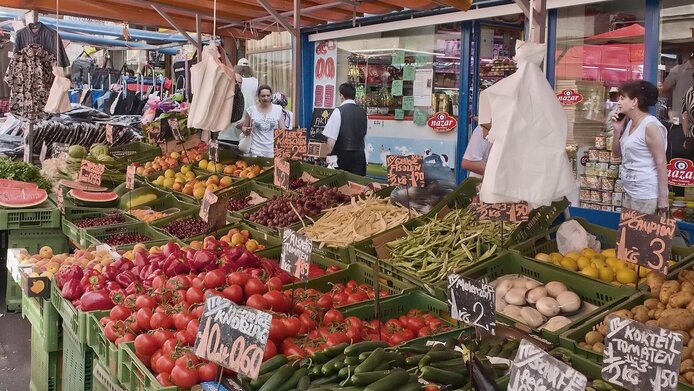Pragmatism as a central life strategy

The image of a residential neighbourhood plays a role for many in deciding where to settle down. If the reputation of an area is bad, those who have a choice tend to avoid it. Families with a migration background, however, do not always have such a choice, which is why they often constitute the majority of people living in structurally deprived neighbourhoods. An international research project led by the sociologist Erol Yildiz from the University of Innsbruck has studied the extent of the impact of these circumstances on the families’ lives, including aspects such as education and work. It also analysed which survival strategies they develop as a consequence of the situation they find themselves in. A new research approach was adopted for this project that focused on the concrete family circumstances of people from different countries of origin with regard to their living conditions. This aspect has previously remained untouched by migration research. Research teams from the Alpen-Adria-Universität Klagenfurt – where Yildiz held a chair during the project period –, the University of Applied Sciences and Arts North-western Switzerland (FHNW) and the Freiburg University of Education (PH Freiburg), each studied two disadvantaged neighbourhoods in their respective cities and were thus able to draw comparisons between Klagenfurt (Austria), Basel (Switzerland) and Freiburg (Germany).
Tainted by a bad reputation
The Austrian team investigated a high-rise housing estate (Fischl-Siedlung) and the area around the railway station in St. Ruprecht in Klagenfurt. Both neighbourhoods have a bad reputation. For the analysis, ethnographic field research was complemented with interviews. Each research team conducted group interviews with eight families with a migration background and 16 individual interviews with family members. One result of the study is that there are changes in the way the residential area is perceived by the respondent families themselves. The study revealed that the bad reputation of their neighbourhood is still something the inhabitants are regularly confronted with. “The younger people who have grown up there are more self-confident than the older generation”, says Yildiz in the interview with scilog. The older people were new to this country, tended to be more reticent and had to rely on family members or neighbours because of language deficiencies. Unlike many children from autochthonous families, the children of migrants attended local schools in the same neighbourhood. A circumstance which is reflected in the composition of the classes in the two schools where the team conducted their interviews. But why didn’t they send their children to school elsewhere?
The less secure, the more pragmatic
“The first generation simply did not consider this to be an option. They had no negative feelings about these schools. Moreover, they were quite pragmatic about their situation and took the schools that were on offer”, explains Yildiz. Pragmatism is a central life strategy – this was another common result the researchers in all three cities encountered. This was especially true of families with an uncertain legal status, such as refugees, who developed a pragmatic life strategy. In the sub-study conducted in Klagenfurt, two of the families interviewed fell into that category. One of them had fled to Austria from Bosnia in the 1990s. For all families, the main problem had been experiences of discrimination connected to their legal status, which made it difficult to develop a perspective on the future.
Better self-employed than unemployed
Pragmatism can also come in handy for overcoming adverse employment situations in a marginalised urban area. Many migrant families opted for self-employment and run small shops or food stalls in the neighbourhood. “This is especially so in St. Ruprecht, in the area around the railway station, there aren’t many job opportunities otherwise. Running their own business is the only way to earn money for many”, says Yildiz. Informal local networks, mainly family members and neighbours, make it easier to navigate the difficult job situation. According to the researcher, it needs to be remembered that the end of state subsidised labour migration meant people had to organise themselves privately. Family networks became much more important. Erol Yildiz shares the example of a man from Bosnia who became self-employed in the construction sector. He then offered jobs and advice to family members and acquaintances who came to Klagenfurt later on. The analysis showed that his function as a role model and advisor was subsequently adopted by his children and grandchildren, who attained higher levels of education in Austria.
Diversity policy has a positive impact
The high significance of family relations also has its drawbacks, however. According to the sociologist, the fact that certain matters were taboo became obvious during the group interviews. Any criticism of common practices, for instance relating to family reunification or marriage, was mainly expressed in the individual interviews, especially by the daughters. As far as central life strategies are concerned – pragmatism, a preference for self-employment and the use of informal networks – the research project revealed many aspects common to all three cities. In one respect, Basel is an exception: during the period of the investigation (2012-2015), the city pursued an official diversity policy and offered more formal support to new arrivals than either Freiburg or Klagenfurt. The comparative analysis of the interviews revealed that this had had a positive impact, particularly with respect to aspects of education and income. The conclusion: despite the bad reputation of a neighbourhood and its structural disadvantages, families with a migration background were still able to develop their own life strategies designed to provide a better start in life and more options for their descendants.
Personal details Erol Yildiz heads the Department of Education Science at the University of Innsbruck. He acquired his professoral qualification in sociology at the University of Cologne. His research focus areas include migration and urbanity. Between 2008 and 2014, Yildiz held the chair of Intercultural Education at the Alpen-Adria-Universität Klagenfurt.
Publications





